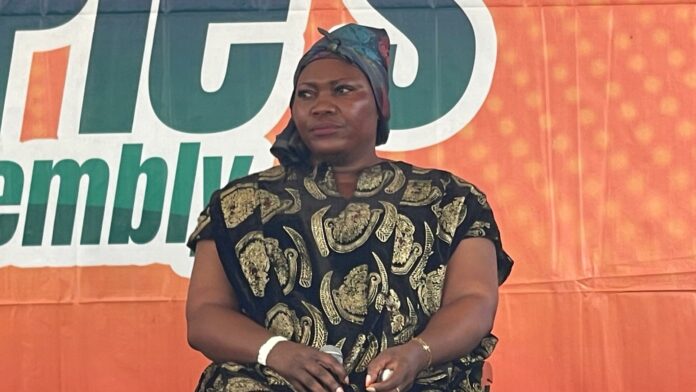Ada: Queen mother bemoans usage of cement papers as sanitary pads by young adults at Okumade
This she says will reduce the cost to allow young ladies of menstrual age whose parents cannot afford the expensive prices purchase some.
- Advertisement -
Naana Madekour Siaw Amgble, Queen mother of Korbgor clan at Okumade in the Ada district of the Greater Accra Region is pleading with the government to either reduce drastically or abolish the taxes on sanitary pads.
This she says will reduce the cost to allow young ladies of menstrual age whose parents cannot afford the expensive prices purchase some.
- Advertisement -
TV’s People’s Assembly at the 2024 Asafotufiami festival at Ada Friday, August 02, 2024, she disclosed that some of the young girls in her community have to resort to cement papers to cater for their menstruation.
- Advertisement -
Despite knowing the health implications of the option, she indicated the young adults have no other choice.
“I embarked on menstrual education for the young girls in my community for them to know how to keep themselves when they menstruate. But the challenge many of them face is that, they cannot afford sanitary pads so they use cement papers,” she revealed.
Naana Madekour explained that “they moist the cement papers with a little water and massage it to make it a little softer. Then they fix it in their panties to soak the blood.”
Several calls have come for the government to reduce or scrap the taxes on sanitary pads to make it affordable for all.
- Advertisement -
Government under the Harmonized System Code 9619001000, classifies sanitary pads as ‘Miscellaneous Manufactured Articles’ which subjects them to a myriad of taxes including: 20% import duty; 15% Import VAT, and other import and statutory levies.
This means that under the current tax regime, taxes are imposed on a biological necessity that women have no control over; thereby making sanitary pads unaffordable and inaccessible, especially to low-income households.
Sanitary products are currently enlisted in chapter 96 of the Harmonized System, and that attracts a 32.5% tax on imported sanitary pads, which comprises a 20% import duty and a 12.5% Value Added Tax. The impact of the taxes is the high cost of a pack of menstrual pad which is between GHC20.00 and GHC40.00.
Meanwhile, the Member of Parliament for Ada, Comfort Doyoe-Ghansah Cudjoe, also speaking at the Assembly expressed the need to re-emphasized that menstruation is a natural phenomenon and the imposition of taxes on sanitary pads which is a basic necessity of life is reinforcing the gender and social norms which efforts are being made to minimize.
The lack of accessibility and affordability is throwing girls and young women out of school and businesses which further widens the inequality gap in education and economic empowerment of women and girls. There are health implications for girls and young women who resort to the use of unhygienic menstrual products because sanitary pads are expensive.
She stressed that all sanitary pads be made affordable, accessible, and available to enable young girls to be able to afford.
Source:onuaonline.com
- Advertisement -


